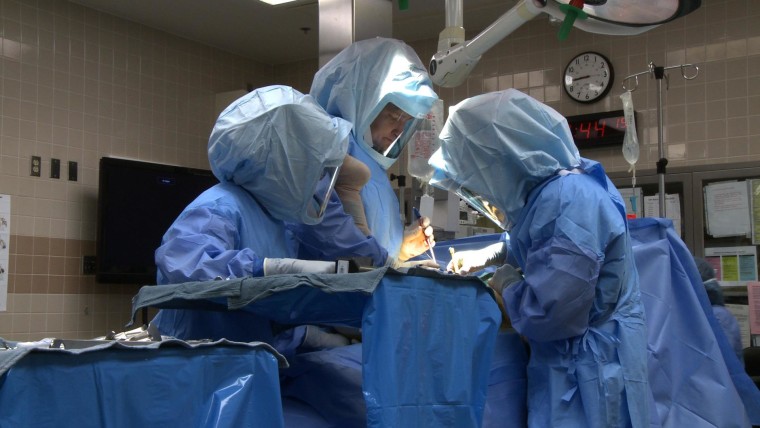Playing music while patients are having surgery can ease their pain and anxiety, even if patients are completely unconscious, researchers reported Wednesday.
They didn’t directly study the effects of music on pain but collated the results of 72 different studies that did. The results were clear: music helped ease pain and anxiety, even if it didn’t help patients recover any faster.
Best of all — it’s cheap.
“Pre-recorded music through headphones, musical pillows, or background sound systems can be a non-invasive, safe, and inexpensive intervention compared with pharmaceuticals, and can be delivered easily and successfully in a medical setting,” the team at Queen Mary University of London wrote in their report, published in the Lancet medical journal.
"There is now sufficient evidence to demonstrate music should be available to all patients undergoing surgery,” said Jenny Hole, a medical student who worked on the study.
“Patients should be able to choose the type of music."
“Patients should be able to choose the type of music, and timing and delivery may be adapted to different settings depending on the medical requirements and teams involved."
Music helped when played before, during or even after surgery, the team found.
"We have known since the time of Florence Nightingale that listening to music has a positive impact on patients during surgery, by making them feel calmer and reducing pain. However, it's taken pulling together all the small studies on this subject into one robust meta-analysis to really prove it works,” said Queen Mary’s Dr. Martin Hirsch.
“Music is a simple and cheap intervention, which reduces transient discomforts for many patients undergoing surgery,” Dr. Paul Glasziou from Bond University in Queensland, Australia, wrote in a commentary.
“A drug with similar effects might generate substantial marketing,” he added.
The only caveat: Music could bother the surgical team.
“Music might impede communication with patients, especially during an awake procedure,” the researchers noted.
“Music and noise could potentially obstruct other interventions through negatively affecting the surgeon’s performance. Therefore, music should not be imposed on the medical team, especially during the procedure.”

